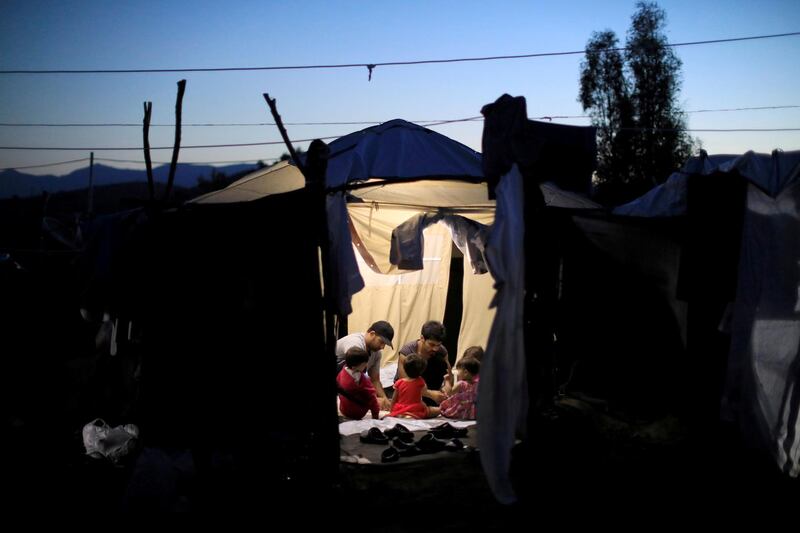Campaigners have warned of a mental health emergency on the Greek island of Lesbos after a report revealed that alarming numbers of migrants there have attempted suicide.
The International Rescue Committee (IRC), who published the report on Tuesday, appealed to Greece to address conditions in the Moria camp on the island, which it said did not meet humanitarian standards.
The charity set up a mental health clinic on the island earlier this year and found that 30 per cent of those visiting the facility had attempted suicide, while 60 per cent had considered it.
The report quoted Ahmad, a 35-year-old Iraqi single father of four, who said: “Several times I have attempted suicide. The only reason I am glad I didn’t succeed is because of the children.”
More than 8,500 refugees are camping at Moria, a disused military base, which is nearly three times as many as it was designed to hold. Most of the migrants are from Syria, Iraq and Afghanistan.
“They have seen terrible things, they may have been tortured or seen family killed. Many of them already come traumatised and then they expect to find protection when they reach Europe and then they end up in terrible conditions, which exacerbates any trauma they have,” Martha Roussou, an IRC official and author of the report, told The National.
“It’s a vicious circle of despair.”
___________________
Read more:
[ Greek NGO assisting migrants denies running criminal network ]
[ Suicidal children in Moria refugee camp must be given a safe haven ]
___________________
The aid group said that 84 people shared one shower, while 72 shared one toilet. Raw sewage, caused by the overwhelmed sewage system, has been known to flow on to children’s mattresses.
Women and girls at the camp are particularly vulnerable and often avoid visiting toilets out of fear of being sexually harassed or assaulted.
“I am afraid for my children. I don’t have my husband with me to keep them safe,” a single Syrian mother-of-three Hanan was quoted as saying.
“A neighbour’s 11-year-old girl went missing. They attacked her here. They raped her. One woman, travelling alone, they raped her too.”
The report said 50 per cent of IRC patients at the clinic had experienced gender-based violence or sexual violence. Of the patients who had experienced such violence, two thirds were women.
“As long as our clients continue to live in Moria, it will be difficult for them to make progress, for they will be stuck in a vicious circle of hopelessness and distress,” the IRC said.
The Greek government has pledged to move 2,000 asylum seekers from the camp to the mainland by the end of September.
Dimitras Vitsas, Greece’s migration minister, said on Monday nearly 900 people had been taken to facilities outside of Lesbos earlier this month while another 1,000 would be transferred this week.
But with boats carrying more refugees and asylum seekers arriving close to Lesbos every week, the IRC said Greece and the rest of the EU must sustain its efforts to move migrants to suitable accommodation on the mainland to ensure such overcrowding does not continue.
“As EU leaders consider so-called “control centres” across Europe, conditions on the Greek islands must give them pause,” the IRC’s head of advocacy in Brussels, Imogen Sudbery said.
“The focus right now must be on ways to ensure greater, more effective responsibility sharing across the EU for those who continue to arrive, not just to Greece but to Spain and Italy as well.”







